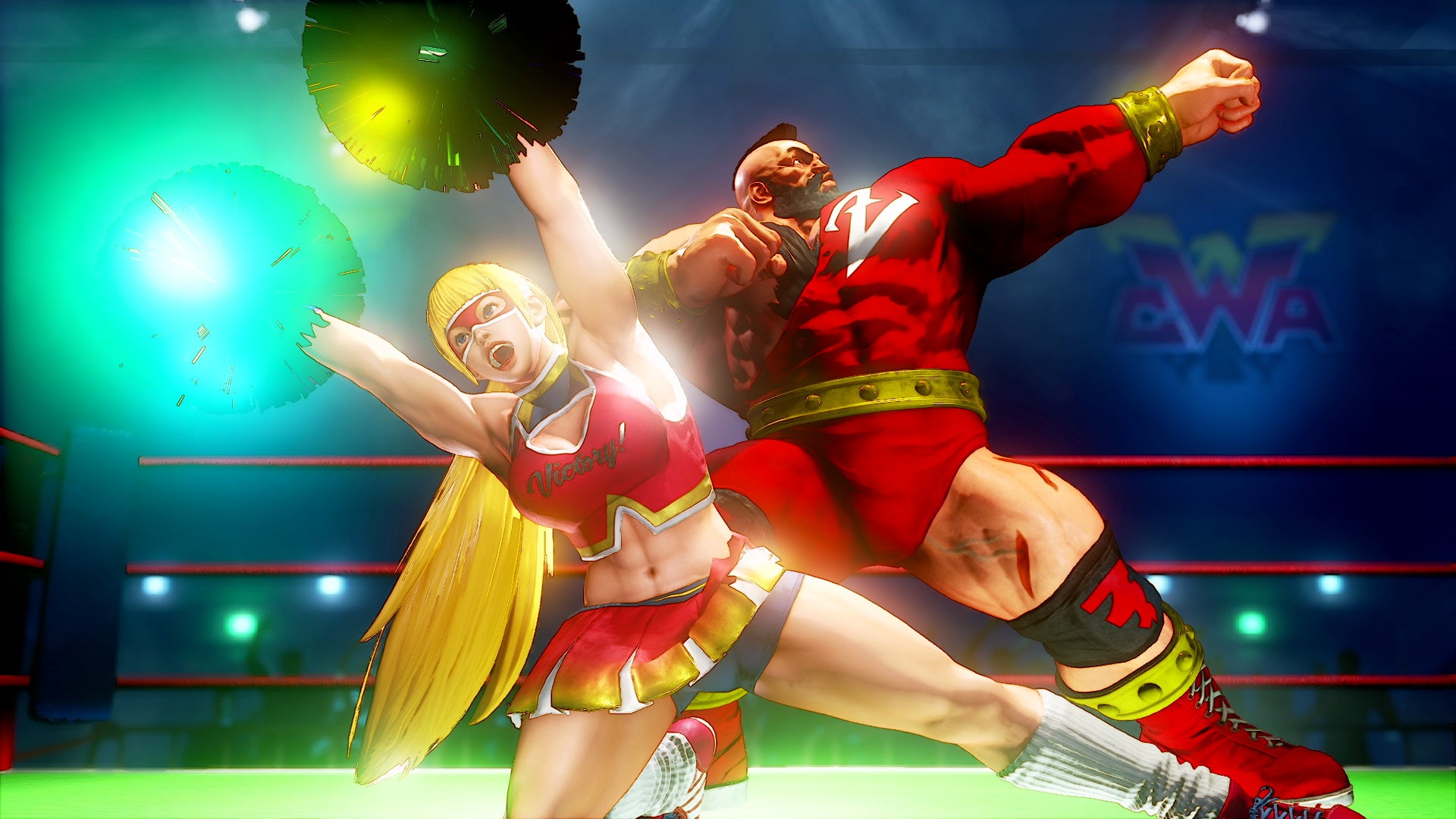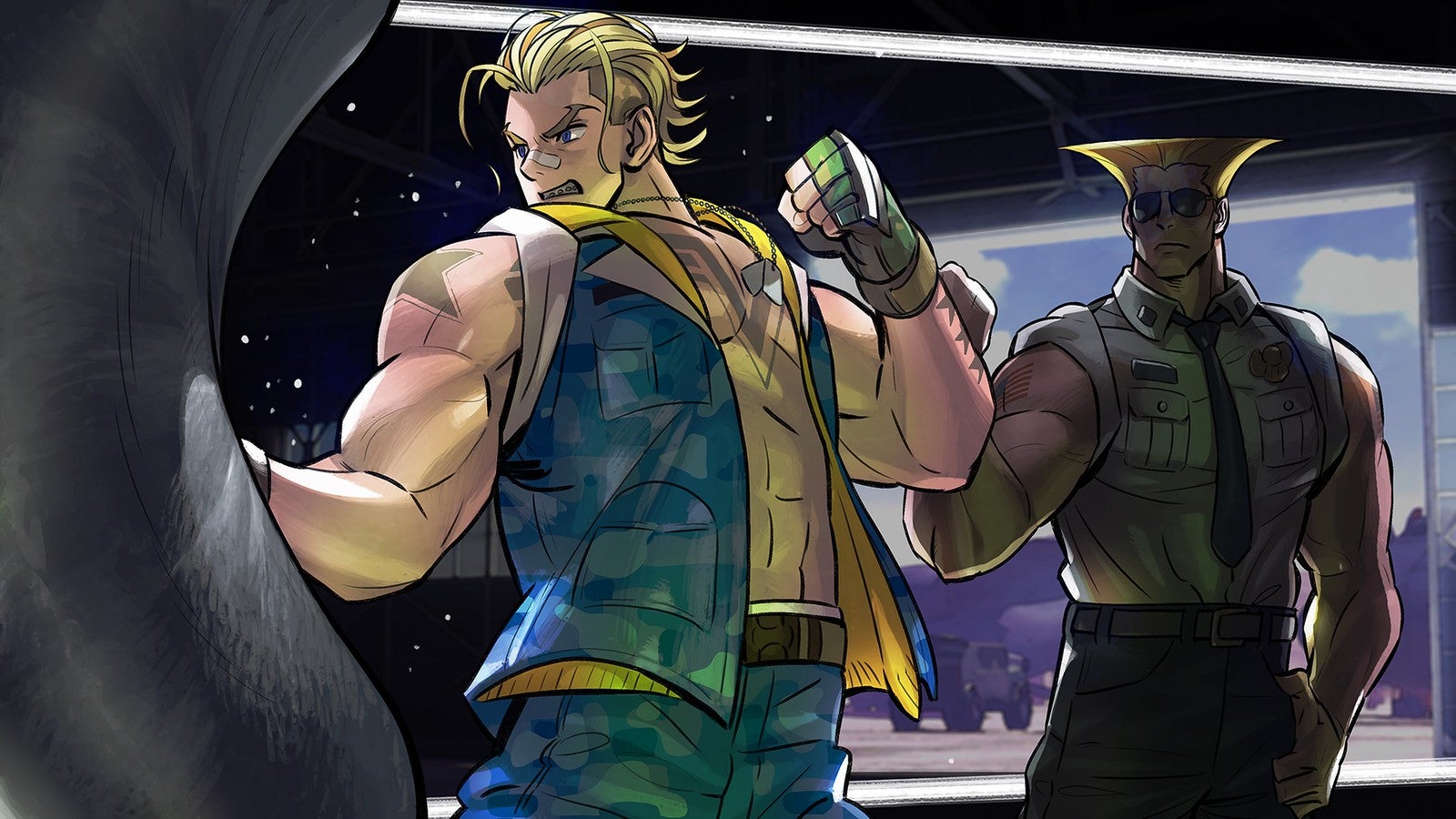Some games, like tag fighters, get more complicated. But at its core, this genre is made to be spectated by just about anybody. At the most basic level, it’s two people beating each other up until one of them can go on no longer. Super bars and the like might be a little confusing to total newcomers, but the purity of a side-on perspective and character health bars make this genre the most broadly understandable for widening the audience of spectators of competitive matches. I really, thoroughly believe this. I’ve seen it myself, even, when I used to help run very small-scale tournaments out of a local pub – the old geezers propping up the bar (the regulars) would find their interest drawn. They’d begin to watch, and begin to ask questions. I think short of games based on real-world sports that there’s a base cultural understanding of already, fighting games are uniquely positioned. They could be the breakthrough mainstream esport. This is also what Capcom has believed for years, it seems. The company has had lofty esports ambitions ever since Street Fighter 4 catapulted that flagship series back to mainstream relevance. As Evo grew from hotel meeting rooms to ballrooms to the Mandalay Bay itself, Capcom has made attempt after attempt to grow the scene and give it more legitimacy – with often mixed results. The company’s latest attempt to standardize things has caused a stir once again - and the response was so swift and overwhelmingly brutal, it’s already being walked back on social media with a commitment to “review the feedback with the wider Capcom team”, which means taking the anger back to Japan. And what happened… Well, it’s a great example of probably the greatest single thing standing in the way of fighting games as an esport. Unlike almost every other major esports genre, fighting games had a truly thriving grass-roots scene long before money and sponsorship got involved. It comes from the arcade scene, of course. People would gather at local arcades on set dates throughout the year, crafting increasingly formal championships. Things grew. Arcades went on the road. You ended up with rivalries, where regional pride was put on the line as the best players from the arcades of Southern California faced off against their Northern rivals; and then the best of those would go off to battle New York’s finest. The same played out in other countries. Nerd cultures got their own jock subcultures, where scrawny bespectacled lads would face off against each other and sometimes even come to blows over in-game beefs. The fighting game community often had a WWE sort of vibe – except the matches, and a lot of the rivalries, were real and unscripted. I’ll never forget how when one rivalry resulted in real-life punches being thrown on-screen, instead of cutting the stream, the commentators excitedly screamed “YO MARVEL!!!”, thrilled the MvC beef had spilled over into the real world. And I’m not gonna lie: I was into it. You can see how all of this would be incompatible with big sponsorship and esports money, though. And over the last console generation, the fighting game community has done much to clear up its act. But even then, there’s continued to be a tension and a tough back-and-forth between companies like Capcom (which want to take the whole scene pro) and the scene itself (that wants that pro money but without sacrificing the grassroots, bang-the-machine arcade feel). The latest frontier in that fight comes this week in the form of a new Street Fighter 5 community license agreement – which is basically the legal framework tournament organizers would have to sign up to in order to run Street Fighter tournaments. While this is for Street Fighter 5, it’s fair to assume this is an indicator of where Capcom might go with the esports-logo sporting Street Fighter 6, too. The agreement splits tournaments into two camps: Community Events and Esports events, with what category an organizer might fall into depending on prize money, entant numbers, and how many events they run a year. There’s also a range of restrictions built into the agreements about how Capcom assets – like the Street Fighter logo – can be used on stream. There’s also a clause that gives Capcom unrestricted rights to use photos, video, and stream footage from the event as much as they like. It’s important to note that basically any event in North America where prize money changes hands would count as a ‘community’ event and require a license – even if it’s only involving a handful of people, a tiny amount of cash, and a few hundred stream viewers. The rules as presented are strictly for North America; it’d be up to regional arms of Capcom to put forth similar rules in other territories. David Graham, aka ‘ultradavid’ – a fighting game community pioneer who also happens to be an attorney who these days specializes in gaming and esports matters – has put out a great analysis of the situation. The point is, the community isn’t happy. As ever, the FGC is largely responding with mockery, with hilarious tweets declaring “YOU WOULDN’T RUN AN SF5 TOURNAMENT WITHOUT YOUR GAMER LICENSE” in the same format as those infamous old “you wouldn’t download a car” ads from DVDs. Others compared Capcom to the WWE’s Vince McMahon as he screams “Take his ass to jail!”, suggesting Capcom wants to jail tournament organizers who want to run even a minor Street Fighter event. Multiple others joked about reporting ‘illegal’ tournaments after being eliminated. Others were more serious, though, drawing comparisons to companies like SNK, who shower tournament organizers with prizes and gifts for competitors without pages of legalese. One cry was practically universal: that grassroots community events have been the lifeblood of the FGC, the oldest scene in competitive gaming – and anything that strangles that low-level scene isn’t going to fly – even if it helps esports ambitions in other areas. Much of the community will simply take their competitive desires elsewhere, to King of Fighters, to Guilty Gear, to Mortal Kombat, or Killer Instinct (make another one, Microsoft) before they give up their grassroots organizations. And while the heady goal is international esports renown, those dedicated communities are the springboard that leads there. Capcom needs them. As we noted earlier, Capcom was pretty quick to walk it back. The whole thing is now going to be re-examined. We’ll see what the end result of that ends up being. But this is the exact sort of goodwill-sapping mistake that the company must not make once Street Fighter 6 promotion is properly rolling. In the meantime, Street Fighter’s endless back-and-forth between community and esports continues.

